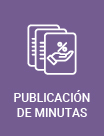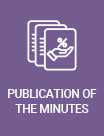Person-to-business Instant payments: could they work in Colombia?
The series Borradores de Economía (Working Papers on Economics) contributes to the dissemination and promotion of the work by researchers from the institution. On multiple occasions, these works have been the result of collaborative work with individuals from other national or international institutions. This series is indexed at Research Papers in Economics (RePEc). The opinions contained in this document are the sole responsibility of the author and do not commit Banco de la República or its Board of Directors.














.png)

































